More in Politics

Advice on Handling Threats in a Complex Relationship Situation
Emoy, a 38-year-old single man, recently reached out seeking advice regarding a potential relationship with Janice, a 30-year-old single mother. Emoy has known Janice since their college days and has long harbored feelings for her. Janice, however, is currently entangled in a complicated situation involving her child's father, an overseas Filipino worker (OFW) from Luzon. The father, who was recently contacted by Janice\'s legal wife, has been warned against his involvement with Janice; Janice now fears possible repercussions should she pursue the relationship further. Sympathetic to Janice\'s predicament, Emoy has expressed willingness to marry her if their relationship develops. He consulted Noy Kulas for advice on how to navigate the threats posed by Janice\'s estranged partner and to safeguard their future together. Noy Kulas advised Emoy to document any threats from the man thoroughly. If the threats are delivered via chat messages, these should be saved. In cases of verbal threats, Noy recommends recording the conversations and filing a police report to create a legal record. Obtaining an official copy of the police blotter to send to the threatening party serves as a deterrent against harmful actions. Furthermore, Noy emphasized the importance of Emoy ensuring Janice genuinely reciprocates his feelings and is not simply turning to him out of desperation. Building the relationship gradually and avoiding haste is crucial, especially considering the emotional complexity surrounding Janice\'s existing circumstances. In conclusion, Noy Kulas supports Emoy\'s decision to accept Janice and her child, encouraging a cautious but sincere approach to forming a stable partnership.
Politics
|2 min read

San Juan Congresswoman Advocates for Code Reform to Enhance Justice Accessibility
San Juan City Congresswoman Ysabel Maria "Bel" Jorge Zamora-Jornada is actively promoting legislative measures to reform the Code Commission and the Code of Crimes, with the goal of fostering a justice system that is more accessible and equitable to Filipinos. In her role as a lawyer-legislator and Vice Chairperson of the Committee on Revision of Laws, Zamora-Jornada emphasized the importance of these bills, stating, "These measures will establish a clearer, fairer legal framework, making justice accessible and responsive to the Filipino people." The congresswoman also expressed her appreciation for Dean Gwen De Vera of the UP College of Law, a former professor and resource person at the committee hearings. "I am deeply grateful to UP Law for its decades of rigorous legal service that laid the foundations for us to ensure that law and justice genuinely serve the nation," she noted. These initiatives underscore efforts to modernize the country's legal codes, aiming for a system that better addresses the needs of the public and upholds justice efficiently.
Politics
|1 min read
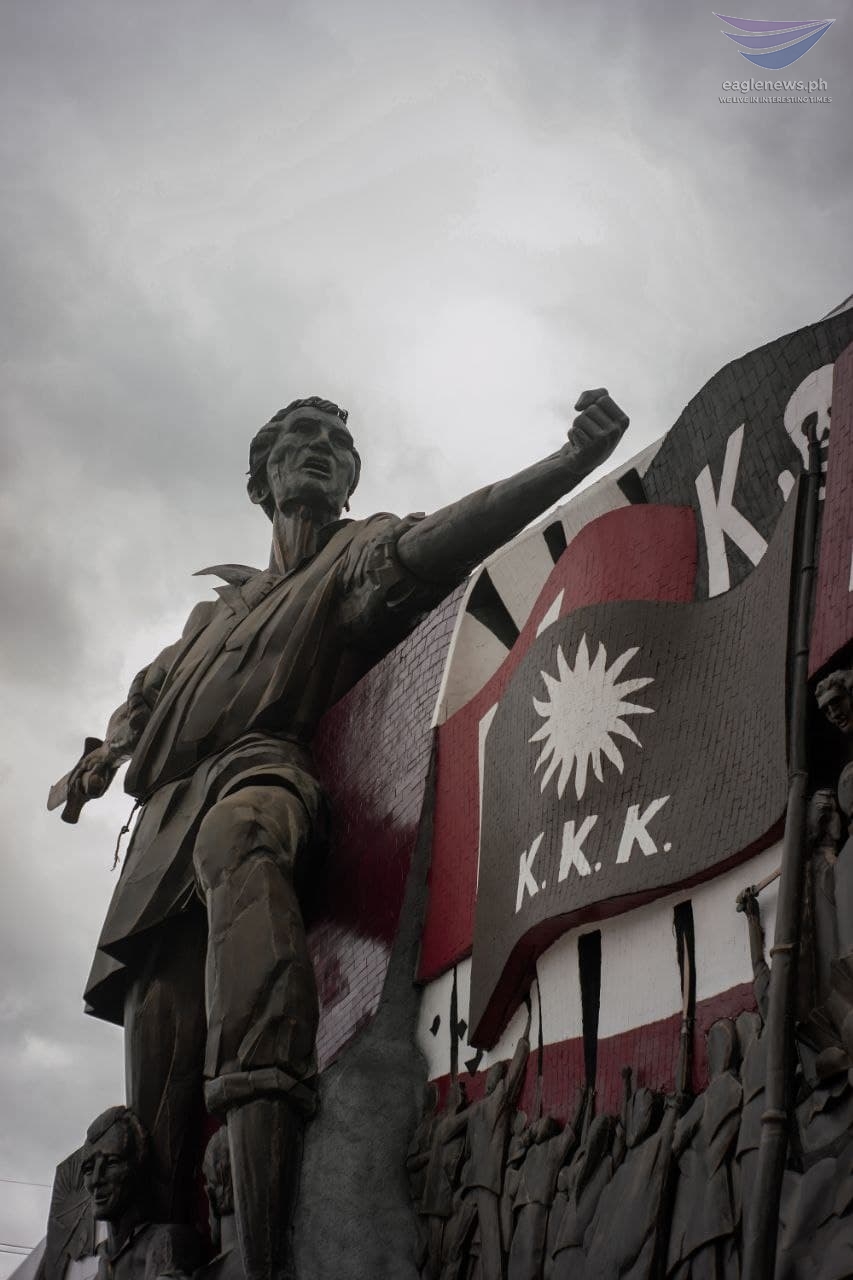
Leila de Lima Honors Andres Bonifacio’s Legacy Amid Calls to Fight Corruption
Mamamayang Liberal party-list Representative Leila de Lima commemorated the birth anniversary of Andres Bonifacio on November 30 by urging Filipinos to embody the revolutionary leader’s enduring spirit in combating government corruption and abuses. De Lima emphasized that if Bonifacio were alive today, he would be at the forefront of protests decrying widespread corruption and demanding accountability from those responsible. She highlighted that Bonifacio’s struggle was rooted in his unwavering commitment to the welfare of Filipinos, speaking out against oppression, livelihood deprivation, and threats to citizens’ lives. "In the face of cruelty and abuse, he did not remain silent. The strongest weapon of the Katipuneros in their fight was their profound love for the motherland," De Lima stated. She urged the public to rekindle the same resolve that the Katipuneros and national heroes upheld, noting that the challenges Bonifacio fought against persist in modern times. "We continue to face the same struggles in our era. Let us keep alive the spirit championed by Bonifacio, the Katipuneros, and our heroes," she added. De Lima called for reinforced unity among Filipinos and a collective recommitment to truth, justice, and transparency in governance. This call resonates amid ongoing protests by various groups demanding transparency and accountability relating to allegations of officials receiving kickbacks tied to substandard or fictitious infrastructure projects. Her remarks serve as a poignant reminder of the relevance of Bonifacio’s ideals in the current fight against corruption and government malpractice.
Politics
|2 min read
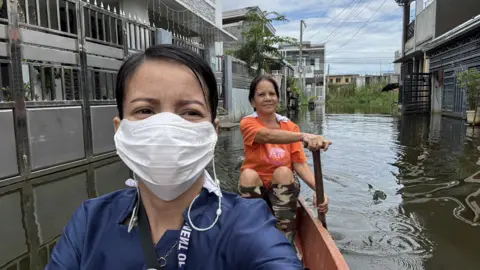
Former IBP Official Urges Mandatory Lifestyle Checks for Public Officials to Promote Integrity
A former officer of the Integrated Bar of the Philippines (IBP), Atty. Antonio Ligon, has called for mandatory lifestyle checks and strict enforcement of a simple and modest living standard for all public officials. Ligon, who also serves as a professor at De La Salle University, emphasized that the blatant extravagance displayed by some officials contradicts the Constitution's call for integrity and weakens anti-corruption efforts. "Public office is a public trust, and all government officials should lead modest lives," Ligon stated during his appearance on the Abogado program of the Bilyonaryo News Channel. He pointed out that many officials today live lavishly rather than modestly, which sets a troubling example for the public. Highlighting the negative impact of ostentatious lifestyles, Ligon remarked that seeing officials in luxury vehicles and grand homes "confuses the public and normalizes a standard that should be considered suspicious." He further noted that even those from affluent backgrounds should embrace sacrifice when entering public service. Failure to maintain modest living, Ligon warned, inevitably raises suspicions of corruption. "The basis of transparency in the Constitution is that the money is coming from the people, and you are being paid by the people. So therefore, you should set an example. And if you don't abide by that provision, there's a suspicion that you're into corruption," he explained. Ligon also advocated for non-selective, compulsory lifestyle checks to enhance transparency. Although current regulations mandate disclosure, enforcement remains weak. He stressed that corruption controversies would diminish significantly if officials were subject to automatic and consistent transparency requirements. Additionally, Ligon underscored the importance of making the Statement of Assets, Liabilities, and Net Worth (SALN) publicly accessible, stating, "The issue of SALNs… should not be an issue. It should be automatic. It should be a given, accessible to the public."
Politics
|2 min read
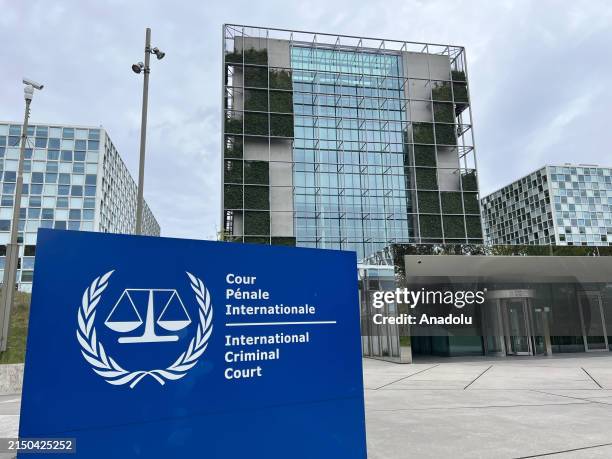
UN Concludes Investigation into ICC Prosecutor Karim Khan's Conduct
The United Nations has concluded its investigation concerning allegations of sexual misconduct involving Karim Khan, the prosecutor of the International Criminal Court (ICC), the presidency of the ICC's governing body announced on Friday. Currently, the details of the investigation remain confidential as the findings undergo examination by an external panel of judicial experts. This review process is anticipated to take up to 30 days before any disclosures are made public. Karim Khan, who has denied all allegations, temporarily stepped down from his duties during the investigation period. The ICC's governing body maintains a commitment to transparency and due process as it awaits the outcome of the expert panel’s assessment.
Politics
|1 min read
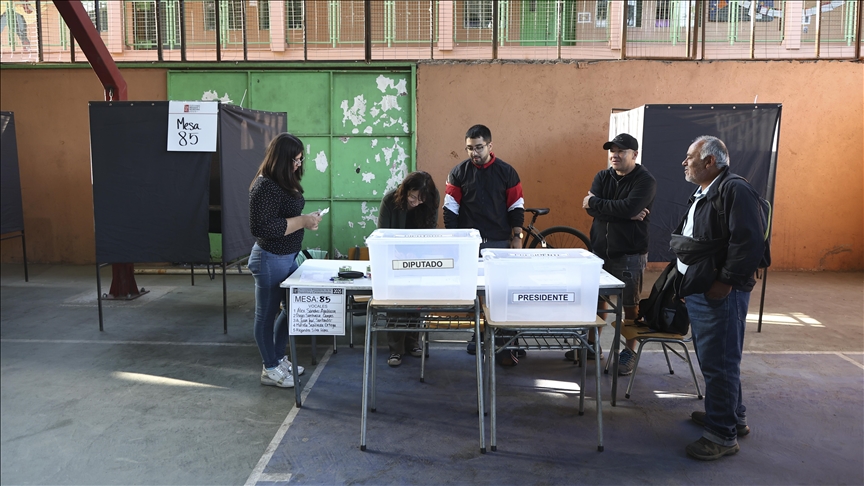
Chile Prepares for Decisive Presidential Runoff Marking Potential Shift to the Right
Chile is holding a crucial presidential runoff election on Sunday, anticipated to produce the most significant rightward political shift since the end of the dictatorship in 1990. Approximately 15.6 million registered voters will cast their ballots, with voting scheduled to conclude at 6 p.m. local time (2100 GMT) and initial results expected shortly thereafter. The contest is between Jose Antonio Kast, founder of the far-right Republican Party, and Jeannette Jara, the coalition candidate from the leftist Communist Party currently aligned with the incumbent government. In November's first round, Jara led with 26.85% of the vote, narrowly ahead of Kast's 23.92%. Analysts predict that supporters of other right-wing candidates will largely back Kast, likely securing his victory with over 50% of the vote. The final stages of campaigning centered heavily on public security, the issue dominating voter concerns. Speaking from Temuco, a region troubled by tensions between Indigenous Mapuche groups and the state, Kast promised to restore order, condemning the current government as responsible for chaos and insecurity. "This government caused chaos, this government caused disorder, this government caused insecurity," the 59-year-old lawyer stated. "We're going to do the opposite. We're going to create order, security and trust." Voters expressed apprehension about crime, with many drawing comparisons to deteriorating security situations in neighboring countries. Aldo Zambrano, a Venezuelan-born teacher residing in Chile, voiced fears of a similar spike in violence as seen in Ecuador. Meanwhile, others highlighted the deep political polarization, hoping for continued emphasis on social benefits and education. Chile remains one of Latin America’s safer nations, but a recent rise in organized crime and increased immigration has unsettled the electorate. These issues have posed challenges for President Gabriel Boric, who, despite barring from immediate reelection, expanded police resources and deployed the military to northern borders in an effort to combat crime. Nevertheless, Boric's approval ratings remain low, while Kast’s tough-on-crime stance has resonated with many voters. Kast’s projected win is welcomed by investors banking on a market-friendly administration that would expedite economic reforms, including deregulation and pension system overhauls. Following the first-round results, the Chilean peso strengthened and equity markets surged. While the legislature remains divided, Kast could leverage his victory to advance economic restructuring. "The third time’s a charm," Kast remarked after securing his place in the runoff, noting his previous presidential bids. Though some of his views were once considered extreme, growing voter desire for security has softened resistance to his platform. Political analyst Marta Lagos described Kast’s rise as an "escape valve for the rejection of politics in Chile." This runoff is also notable as Chile’s first election under mandatory voting laws with automatic registration and penalties for abstention. Approximately 20% of voters remain undecided or intend to cast blank ballots, adding unpredictability to the outcome. University of Valparaiso analyst Guillermo Holzmann pointed out the key question of how these non-committal votes will affect the final result. In her last major campaign event in Coquimbo, Jara emphasized the need for firm crime policies alongside robust social programs and urged citizens not to abstain. "Talk to people who are thinking about voting blank. There’s a lot at stake and we have to move forward, not back," the 51-year-old lawyer and former labor minister said. The election’s outcome will shape the country’s political and economic direction amid a complex landscape of security concerns and social demands.
Politics
|3 min read

Bicol Saro Party-list Rep. Terry Ridon Responds to Pokwang’s Video on Road Rage Incident
Bicol Saro Party-list Representative Terry Ridon today addressed comments made by entertainer Marietta "Pokwang" Subong in a recent video concerning a widely publicized road rage incident involving her brother, Carlo Subong. In a statement issued Wednesday morning, Dec. 17, Ridon expressed his objection to remarks that seemingly referenced him. He noted that Pokwang had implied a lawmaker had falsely claimed photos of her entire family were posted online, accompanied by threats of cyberlibel and cyberbullying related to those claims. "There is no one else Ms. Subong could be alluding to except me, as I have been consistently speaking on road abuse issues, including the e-bike ban and the present road rage incident," Ridon said, responding directly to her statements. Ridon clarified several points. Firstly, he asserted that Carlo Subong, not Pokwang, should apologize for the incident. According to Ridon, a viral video shows Carlo Subong striking Crispin Villamor on the head after a collision involving Villamor’s cart and Subong’s Toyota Hilux (plate no. NHU-9321). Ridon described Subong’s actions as "grave threats, physical injuries, and child abuse" against Villamor and his daughter. Secondly, he denied that pictures of Pokwang’s entire family were posted online. Instead, only images of Carlo Subong—the individual responsible for the incident—were shared. Ridon emphasized that the public has the right to be informed about individuals who commit offenses against ordinary citizens. Thirdly, Ridon highlighted the supervisory role of Congress in matters concerning transportation and public safety, including road rage episodes, regardless of where they occur within the country, such as Antipolo City. Addressing the threat of legal action over cyberlibel and cyberbullying, Ridon maintained that his statements were factual and anchored on publicly accessible information. He cited the publicly available Land Transportation Office (LTO) Show Cause Order and the visibility of Subong’s conduct as grounds that negate such charges. "These are public offenses that implicate public interest and accountability, and cannot be treated as purely private matters subject solely to the agreement or settlement of the parties involved," he added. In closing, Ridon remarked, "Hindi kayo ang biktima dito. Ang biktima dito ay si Crispin at ang kanyang anak. Ang biktima dito ay ang mga ordinaryong Pilipinong inaabuso ng mga katulad ni Carlo Subong" (You are not the victim here. The victim here is Crispin and his child. The victims here are the ordinary Filipinos who are being abused by people like Carlo Subong).
Politics
|2 min read
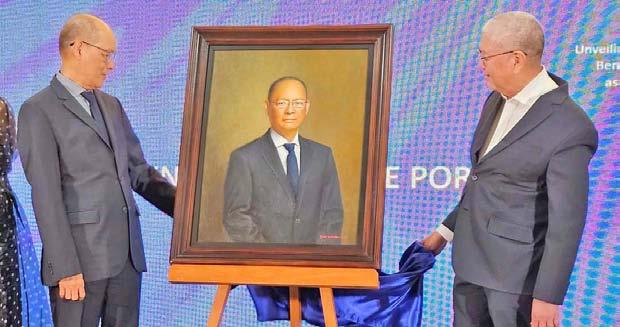
Manila Rep. Joel Chua Meets French Ambassador to Strengthen Bilateral Cooperation
Manila Representative Joel Chua recently welcomed French Ambassador Marie Fontanel during her visit to the House of Representatives. The meeting focused on exploring opportunities to deepen bilateral ties and foster collaborative efforts. Joining the discussions were Political Counselor Melanie Mar and Agata Nowicka from the European Union, further emphasizing the international dimension of the dialogue. Chua, who chairs the House Committee on Good Government and Public Accountability, described the gathering as a vital occasion to exchange insights, strengthen cooperative frameworks, and advance principles of effective governance. He remarked, \"Sama-sama tayo, patungo sa mas matibay na partnership para sa mas maunlad na kinabukasan.\" (Together, we move towards a stronger partnership for a more prosperous future.) The engagement highlights an ongoing commitment to enhance diplomatic relations and promote shared goals between the Philippines, France, and the European Union.
Politics
|1 min read
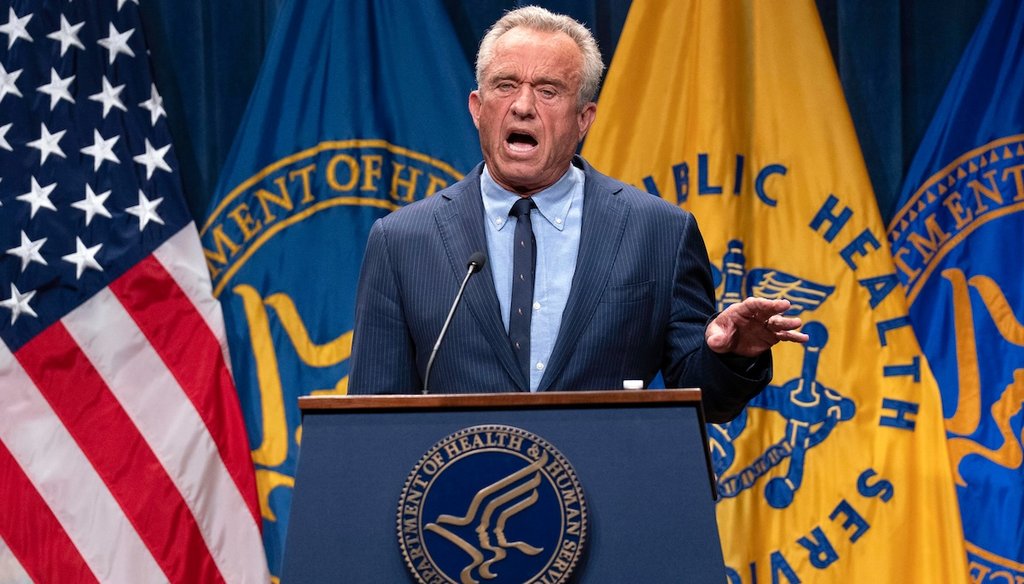
PM Announces Independent Review of Bondi Beach Terror Attack Response
Prime Minister Anthony Albanese has initiated an independent review to examine the effectiveness of Australia’s federal law enforcement and intelligence agencies in the lead-up to the Bondi Beach terror attack, which tragically resulted in 15 deaths, including a 10-year-old child. The review will be headed by Dennis Richardson AC, a former senior public servant and former head of the Australian Security Intelligence Organisation (ASIO), the departments of Defence, and Foreign Affairs. Richardson’s previous experience includes oversight of inquiries into the intelligence community and the Home Affairs portfolio. The review, set to deliver its findings by April 2026, will evaluate the performance of agencies such as ASIO and the Australian Federal Police to determine whether they acted to their fullest capacity before the attack. It will also assess the level of information sharing between federal and state agencies and whether preventative measures could have been implemented. Mr Albanese expressed his condolences, stating, \"My heart breaks for the families affected by this horrific act. Just over two weeks ago, antisemitic terrorists sought to tear the nation apart, but our country remains resolute against such cowardice. They targeted Bondi Beach with the intent to inflict mass murder on our Jewish community. Our response must be swift and unified.\" The Prime Minister emphasized that Mr Richardson will have \"full access\" to all relevant materials, with government departments pledged to fully cooperate by providing documents, data, and facilitating meetings. Mr Albanese also indicated that Parliament will reconvene in 2026 to swiftly consider related legislation. Opposition figures have criticized the government’s choice of an independent review over a Royal Commission, arguing that a commission would offer a more comprehensive investigation. Home Affairs spokesperson Jonathon Duniam described it as a \"sad turn of events.\" Meanwhile, Home Affairs Minister Tony Burke defended the decision, expressing concern that a Royal Commission might inadvertently provide a public platform for antisemitic voices. He highlighted the importance of conducting an inquiry that prioritizes national security without amplifying hateful rhetoric. Security footage presented in court has shed light on the perpetrators’ activities on the morning of the attack, showing them transporting what appear to be firearms from a property in south-west Sydney. Minister Burke reaffirmed that he is in daily contact with ASIO and the Australian Federal Police and underscored the government’s commitment to addressing social cohesion and security challenges with urgency through the independent review process.
Politics
|2 min read
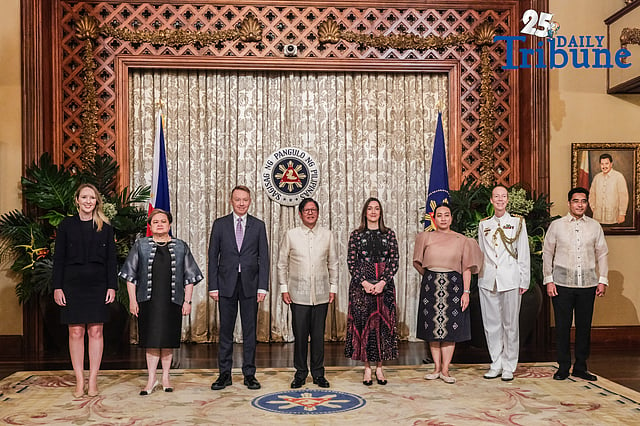
President Marcos Jr. Honors OFW Heroine Who Saved Infant from Deadly Hong Kong Fire
President Ferdinand “Bongbong” Marcos Jr. personally honored overseas Filipino worker (OFW) Maria Liza Santos for her heroic act in saving an infant from a deadly fire that erupted in a residential building in Hong Kong last March 15. The tragic blaze threatened dozens of families in the district of Tsuen Wan, but MS. Santos risked her own life to carry a baby to safety amid thick smoke and collapsing debris. Her courageous and selfless deed was applauded as an embodiment of the Filipino spirit of malasakit (compassion) and bayanihan (community solidarity). In a solemn ceremony at Malacañang Palace, President Marcos Jr. bestowed a Presidential Commendation on Santos, praising her exemplary bravery and dedication to her fellow Filipinos abroad. "Your heroism is a vivid reminder that Filipino heroes are never alone," the President said. "As your leader, I assure you of our tireless care and unwavering support. This is the essence of our Maasahan at Masipag leadership." Highlighting the administration’s commitment to protecting overseas Filipinos, the President underscored the seamless coordination between the Overseas Workers Welfare Administration (OWWA), the Department of Migrant Workers (DMW), and the Philippine Consulate General in Hong Kong. These agencies have collectively extended multi-agency assistance encompassing emergency welfare support, legal protection, and reintegration services for Santos and her family. Under OWWA’s welfare programs, Ms. Santos received immediate financial aid and psychosocial counseling to help cope with the trauma. The DMW assured continuous livelihood assistance and legal advisory, ensuring her rights as a migrant worker are upheld. Meanwhile, the Philippine Consulate facilitated emergency evacuation, case management, and consular protection during the aftermath of the fire. According to OWWA Administrator Evelyn Cruz, "Our multi-sectoral approach guarantees that every OFW facing adversity abroad gets concrete support. Maria Liza's story is a powerful catalyst for us to strengthen our programs." The Department of Migrant Workers Secretary, Jose Ramos, echoed these sentiments: "President Marcos Jr.'s leadership inspires us to persistently uphold the dignity and welfare of Filipinos overseas. This recognition reaffirms that no sacrifice goes unnoticed and no Filipino stands alone." This recent event and the government’s response spotlight President Marcos Jr.’s consistent message: “Reliable leadership. Tireless care. Filipino heroes are never alone.” His Maasahan at Masipag brand of leadership reinforces the core Filipino values of community, courage, and compassion while positioning the state as the steadfast protector of its diaspora. As overseas Filipinos continue to be pillars of the nation’s prosperity and resilience, the administration remains committed to ensuring their safety, welfare, and recognition—embodying the trusted leadership Filipinos have come to depend upon.
Politics
|3 min read
